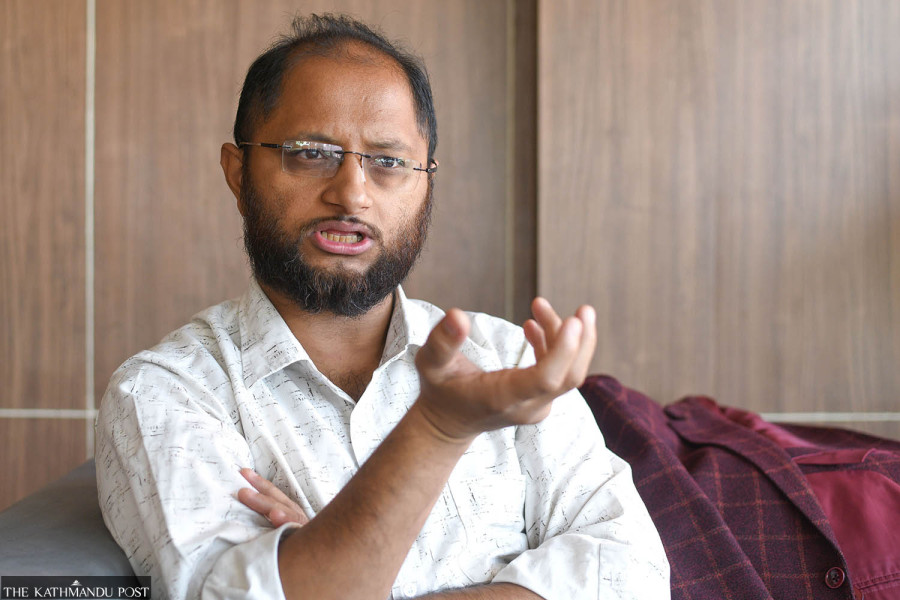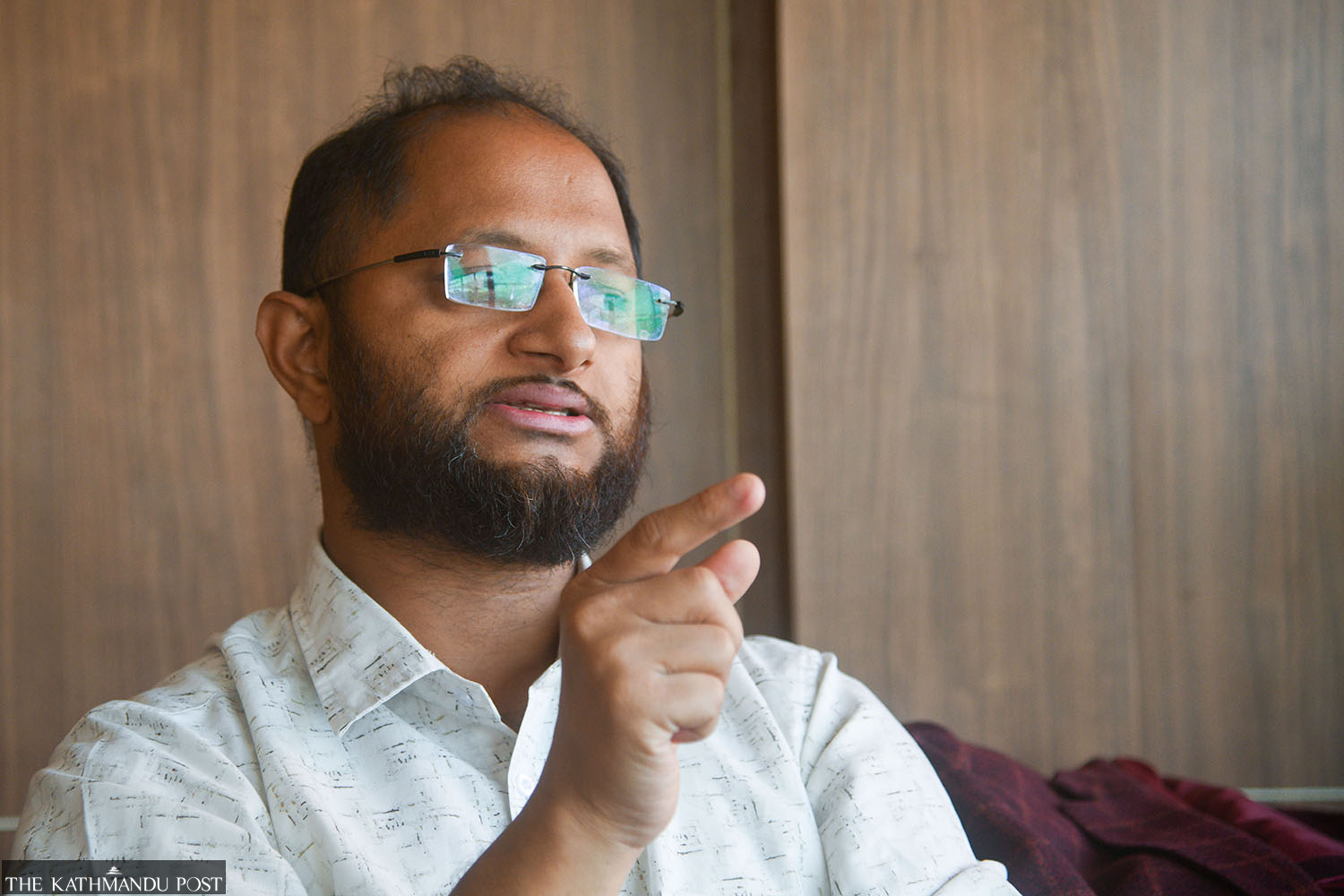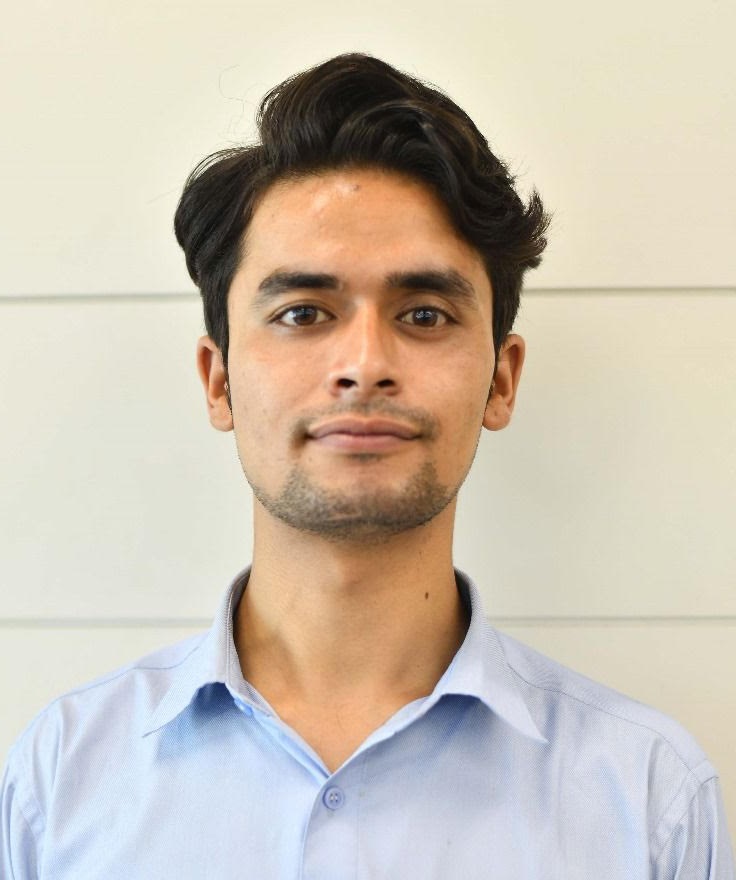Interviews
Alternative political forces are new mainstream parties
Adopting a government system with a directly elected executive without a constitutional amendment would undercut the constitution, compromising it altogether.
Biken K Dawadi
The Gen Z movement has redefined Nepal’s political landscape. The general public’s growing distance from the traditional political parties has seemingly made them closer to alternative forces. The Post’s Biken K Dawadi sat down with a pioneer campaigner for alternative politics in Nepal, Bibeksheel leader and engineer Milan Pandey—who has also been in close touch with the leaders of the recent Gen Z movement—to discuss the genesis of the Gen Z protest, the potential for a strong collective of alternative political forces and the Gen Z political leadership. Excerpts:
How do you analyse the Gen Z protest and its contribution to the fostering of alternative politics in Nepal?
The Gen Z protest of September 8-9 was like a volcanic eruption. In the case of a volcano, it takes hundreds of years of magma accumulation. The protests were a result of years of accumulation of anger against the political system and leaders, which was also visible on the streets and in elections.
On the streets, we saw the ‘Enough is Enough’ movement in 2020 and Prem Acharya’s act of self-immolation in 2023, expressing discontent over the malign statecraft. In the ballot box, be it 21-year-old Ranju Darshana securing 23,000 odd votes in the mayoral polls for Kathmandu in 2017, independent candidate Balen Shah’s sweeping victory in the same polls five years later or the sudden rise of the Rastriya Swatantra Party (RSP) in the 2022 general elections, Nepali people have expressed their preference for alternative political forces.
The movement was not ignited overnight or designed by foreign actors. These incidents welled up to erupt during the Gen Z protest in early September, again highlighting people’s search for alternative politics.
Before the Gen Z protest, alternative forces, including Balen Shah, Kulman Ghising, and the RSP and Bibeksheel Party, were in talks to form an electoral alliance. How were the talks affected by the protest?
If anything, the protests accelerated the talks on bringing all the alternative political actors together for the elections. By calling snap polls, our timeline for coming together was shortened, requiring accelerated efforts. All of us were knitted together by two things: Agenda and common antagonists. We had the common agenda of propping up the new generation to lead the country, installing good governance practices and cleaning up the political system. Our common enemy was the top leaders of traditional parties and their tendency to corrupt the political system.
You have been in constant touch with several Gen Z leaders. In general, how do you see disputes among them and the formation of multiple groups?
The Gen Z-ers were united by dissatisfaction with the regime and the Oli-Deuba-Dahal troika while calling for the September 8 protest against corruption and bad governance. In any movement, it is not unnatural to have varied views beyond the common agenda. In the case of the Gen Z movement, there are contradictory views on, say the case for a directly elected executive or the urgency of the arrest of former PM KP Sharma Oli and former Home Minister Ramesh Lekhak. This is natural in a developing movement with multiple faces taking the lead.
The bottom line, however, is common: The murderers of the 21 individuals killed on September 8 must be arrested and punished, the system that gave rise to Nepo-kids and rampant corruption must be eradicated, and the snap polls must be held on time.
There were 122 political parties registered at the Election Commission (EC) before the Gen Z movement. With so many parties, what is the problem with having 10-12 Gen Z groups?
How do you see some Gen Z leaders’ demand for the immediate arrest of Oli and Lekhak?
One month after the state-inflicted tragedy of September 8, the Gen Z leaders I have been communicating with have echoed the same opinion about Oli and Lekhak: We will not forgive you, we will not forget you.
Taking action against the duo is vital, but also a sensitive matter. There was a delay in booking them for their action, which has now complicated the situation. However, no steps can be taken that will be interpreted as vindictive politics. Many Gen Z leaders have now realised that action must follow the correct legal procedure and come through the concerned body formed to investigate the incident. PM Sushila Karki and Home Minister Om Prakash Aryal are individuals who are knowledgeable about our laws and politics. We must trust them to make the right decision at the right time.
With a demoralised police force and sluggishness in reaching a political consensus over the snap polls, do you think the elections will be held on time?
The government employees I have communicated with have expressed their commitment to timely elections. For years, we have been told by the EC that 120 days are adequate to prepare for elections. We have more than 140 days leading up to the elections at the moment. The government needs to bring programmes to increase the police’s morale and ensure strict adherence to EC’s detailed timetable.
There is no alternative to timely elections. The traditional political parties must realise this or face public ire. Among the three traditional forces, only the CPN-UML has rejected the legitimacy of the elections, as highlighted by Oli’s recent speech, where he even questioned the legitimacy of the Karki government. The UML must realise that the elections will take place, with or without their participation, as long as most of the traditional parties decide to take part.
What do the traditional parties need to reflect on in the aftermath of the Gen Z protest?
The Nepal before September 7 is completely different to the Nepal after September 10. The traditional parties must realise that they are no longer the mainstream. People’s will seems to be inclined towards ‘alternative’ forces, including Balen Shah, Kulman Ghising, RSP, Bibeksheel Sajha and now the anticipated Gen Z-led parties. They are, therefore, in a position to be the new mainstream.
Traditional parties face a do-or-die situation. If they do not reflect and reform in line with the grievances highlighted by the Gen Z protest, they will become obsolete. For this, power must be transferred from the Oli-Deuba-Dahal troika.
What are the challenges for the ‘new mainstream’?
The main challenge for the ‘new mainstream’ is to come together to form an electoral alliance based on a common agenda. We want a structural change in politics and the economy. Just because we are newer forces does not mean our fundamentals are the same. We need to set the right precedent by finding compromises where necessary, but not on our fundamental political beliefs. Only when we create a united front can we challenge the traditional forces and secure a significant presence in the legislature. The Gen Z-ers have staged protests on the streets; now it is time for the ‘new mainstream’ to stage protests via the ballot.

How do you see some Gen Z leaders’ demand for an immediate change in the system of governance, from the parliamentary system to a directly elected executive?
Changing the system of governance without approval from the legislature will damage our constitution. The constitution might not be perfect, but it has united the nation by ensuring the inclusivity of various marginalised groups and finding a commonality in us beyond our different religions, gender, caste and ethnicity.
Of course, not everyone is fully satisfied with it. Groups such as Madheshis, Dalits and monarchists have their grievances, but the way forward is making legitimate amendments to the charter, not undermining it.
Our constitution establishes Nepal as a parliamentary republic. It only allows for an amendment via a two-thirds majority in the legislature. Adopting a system of governance with a directly elected executive without a constitutional amendment would undercut the charter, compromising it altogether. We will then invite more chaos. Therefore, if we want a change in our political system, we need to do it via the legislature. If we want a directly elected executive, we need to form an electoral alliance based on the agenda and make the change via a legitimate constitutional amendment.
Is an alliance based on the agenda of a directly elected executive a viable option for the alternative forces?
If the agenda of a directly elected executive does not clash with our fundamental political beliefs, it can unite the alternative forces. And if an alliance of newer parties cannot muster the two-thirds majority to change the system, we could collaborate with the traditional parties to bring about the desired change.
Parties such as the Maoist Centre and some factions of the UML have supported the case for a directly elected executive in the past. Even within the NC, leaders like Gagan Thapa have said that they support such a system.
What other agendas can bring the ‘new mainstream’ together?
In addition to the agenda of a directly elected executive, bringing about party-related reforms, such as an end to the culture of sharing political spoils post-elections, can bring us together. We all realise that malpractices such as appointing vice-chancellors of universities based on proximity to the ruling party and having the prime minister as the chancellor of all universities need to be changed. This is an agenda that resonates with the public.
Another agenda that can bring us together is electoral reform. We need to appoint ministers based on their sector-wise achievements. Someone who has an excellent track record in the education sector would be a better Education Minister as compared to a Member of Parliament who is appointed to the position based on their party’s presence in the parliament. We need a system that enables technocrats to hold these positions without having to contest elections. The number of MPs needs to be reduced, and the same with the number of provincial ministers.
Along with these political reforms, do you also envision socio-economic reforms?
Our focus should be on increasing the per capita income. We have capable people in Nepal who are forced to leave the country due to insufficient financial compensation for their skills. We need to improve the minimum wage threshold for workers in Nepal. A tax reform is also necessary. The higher rates of taxes need to be lowered to improve tax collection. Currently, the exorbitant rates encourage the public to commit tax fraud. In addition, we need to check our financial leakages. For example, we lose around Rs 400 billion annually to food wastage. If we were to decrease this leakage, we could reinvest it into a more productive sector, such as education.




 18.12°C Kathmandu
18.12°C Kathmandu




.jpg&w=200&height=120)







